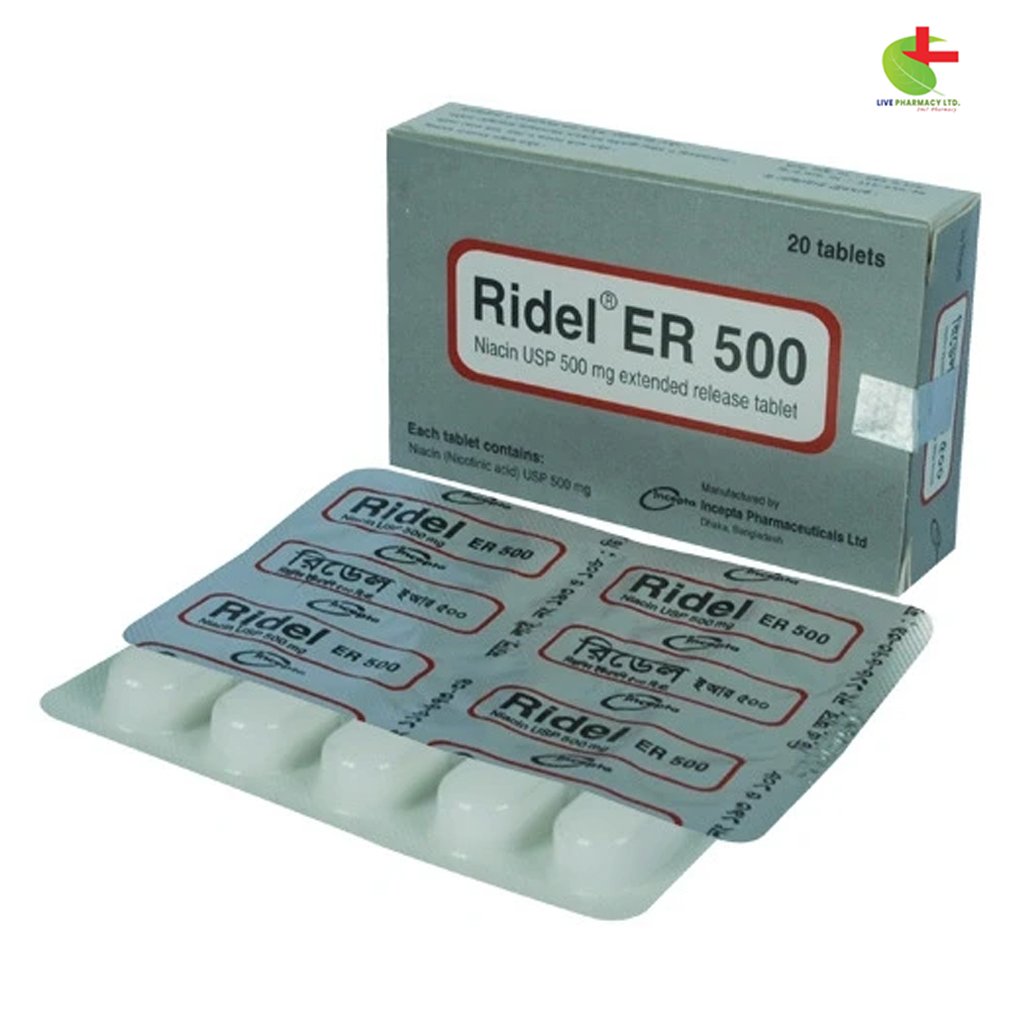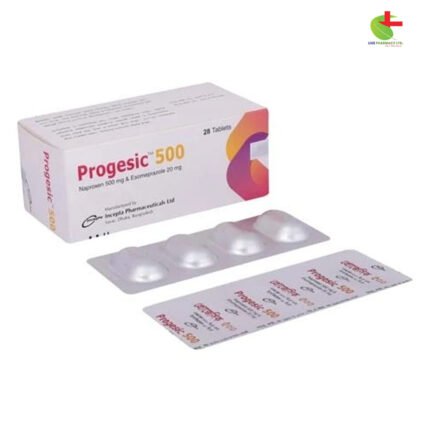Ridel ER
80.00৳ Strip
- Niacin is an effective adjunct therapy for lowering total cholesterol, LDL, and triglyceride levels, while raising HDL cholesterol.
- It is particularly useful for patients with primary hypercholesterolemia and mixed dyslipidemia when diet alone is insufficient.
- Additionally, Niacin helps reduce the risk of recurrent nonfatal myocardial infarction in individuals with a history of heart issues.
- Always consult a healthcare professional before starting treatment.
 Brand
Brand
|
Incepta Pharmaceuticals Ltd |
|---|---|
 Generics
Generics
|
Nicotinic Acid [Niacin] |
 Type
Type
|
Tablet |
Indications
Niacin is indicated as an adjunct to diet for lowering total cholesterol (TC), low-density lipoprotein cholesterol (LDL-C), apolipoprotein B (Apo B), and triglyceride (TG) levels, while also raising high-density lipoprotein cholesterol (HDL-C) in patients with primary hypercholesterolemia (both familial and non-familial) and mixed dyslipidemia when dietary changes alone are insufficient. It is also prescribed to reduce the risk of recurrent nonfatal myocardial infarction in patients with a history of myocardial infarction and hypercholesterolemia. Additionally, Niacin serves as adjunctive therapy for adults with very high triglyceride levels (Type IV and V hyperlipidemia), who are at risk for pancreatitis and have not responded adequately to dietary efforts. Before starting Niacin therapy, secondary causes of hypercholesterolemia should be ruled out, and a lipid profile should be obtained to assess TC, HDL-C, and TG levels.
Consult a registered physician before use.
Pharmacology
Niacin, a form of nicotinic acid, is effective in lowering very-low-density lipoprotein (VLDL), LDL, total cholesterol, and triglyceride levels, while increasing HDL levels. It is primarily used for the management of cardiovascular diseases, particularly hyperlipidemia.
Dosage & Administration
- Initial Dose: 500 mg at bedtime for 1 to 4 weeks.
- Maintenance Dose: Do not increase the daily dose by more than 500 mg every 4 weeks. The recommended maintenance dose ranges from 1000 mg (two tablets) to 2000 mg (four tablets) once daily at bedtime. Doses above 2000 mg daily are not recommended. Follow your physician’s directions.
Consult a registered physician before use.
Interactions
Niacin may enhance the effects of ganglionic blocking agents and vasoactive medications, potentially leading to postural hypotension. The concurrent use of aspirin may affect the metabolic clearance of Niacin. It’s advised to separate the intake of bile acid-binding resins from Niacin by 4 to 6 hours to prevent interaction.
Contraindications
Niacin is contraindicated in individuals with known hypersensitivity to Niacin or any component of the medication, significant unexplained hepatic dysfunction, active peptic ulcer disease, or arterial bleeding.
Side Effects
Niacin is typically well tolerated, but some patients may experience mild, transient adverse reactions such as flushing, itching, nausea, gastrointestinal upset, jaundice, hypotension, tachycardia, and increased serum glucose and uric acid levels.
Pregnancy & Lactation
Niacin should not be used during pregnancy or lactation due to insufficient safety data.
Precautions & Warnings
Prior to initiating Niacin, lifestyle modifications such as diet, exercise, and weight management should be attempted to control hyperlipidemia. Close monitoring of liver function tests and blood glucose levels is essential, especially in diabetic patients, as Niacin can exacerbate glucose intolerance. Caution is advised for patients with unstable angina or during the acute phase of myocardial infarction, particularly if receiving vasoactive drugs. Monitor uric acid levels in patients predisposed to gout, and observe prothrombin time and platelet counts if using Niacin with anticoagulants.
Overdose Effects
In case of overdose, supportive measures should be provided. Symptoms may include nausea, dizziness, flushing, vomiting, and gastrointestinal upset.
Storage Conditions
Store in a cool, dry place, away from light and moisture. Keep out of reach of children.













Reviews
There are no reviews yet.